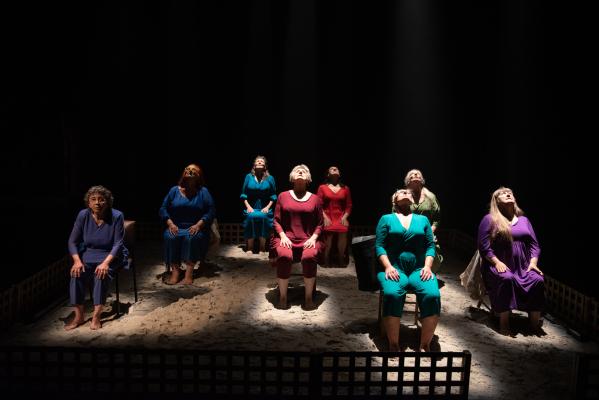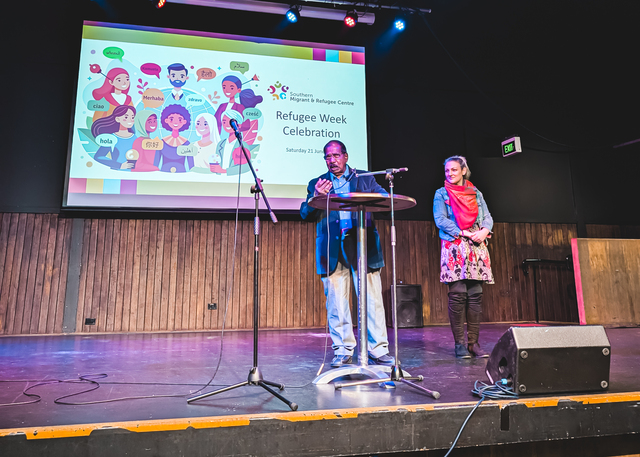In anything but a “pity party”, a cast of women who had endured and survived homelessness gave real insight into life on the streets.
unHOWsed was staged online in a pre-recorded theatrical performance by Drum Theatre, followed by a compelling Q&A on Wednesday 18 July.
Each woman’s story is acted with strength, dignity and artistic polish.
Director Deborah Leiser-Moore says she didn’t want to present a “pity party” but a “beautiful piece of theatre”.
She wanted to give audiences a “visceral experience” of what the individual women went through.
There were “snapshots” that showed who they were, such as playing a piano, or playing the spoons, or eating out of a car while “keeping dignity” or showering clothed at St Kilda Baths so to wash your garments as well as yourself.
There was also a sense of “shared community” amongst the ensemble. Trust was built for them to reveal their traumatic stories – as well as their strength.
“These women are strong and it was a privilege to work with them”.
A refrain of “forever” is repeated through the show – that helpless feeling that seems “could go on forever”.
“There is no easy solution out or you cannot see your way out.”
It’s a more common refrain with homelessness among Australian elderly women up 31 per cent in the past five years.
Homelessness Australia reports an 83 per cent rise in older women ‘couch surfing’ and 75 per cent more sleeping in cars.
A cast member Maurya told of the lack of respite moving from boarding house to boarding house to boarding house.
And the despairing hunt for nutritious food, besides hot dogs, tinned beans and cheese toasties. The poor quality charity food made her feel unimportant.
“No wonder your health is s***.”
She paid tribute to St Kilda outreach workers for keeping her resilient, keeping her believing in herself.
Carla, another actor in the show, said not feeling safe, cold nights and not knowing where your next meal would come from. “Everything felt so distant and unreachable”.
After being severely abused as a child, Jan told of receiving a doll at a children’s home. It was her first Christmas gift, something that made her feel “special”.
She moved to a Mornington orphanage, where the doll was removed from her suitcase and perched high out of reach on a dining room ledge.
“I sat and looked at it for three or four years. I couldn’t touch it.”
The doll is now in her possession, and features in the show.
She says people have to “accept” homeless people for “who they are”. Too often people “whinge” about accommodation arriving in their neighbourhoods.
“If they have got housing and support, with a bit of luck they’ll rise up above homelessness.”
Karen said it took many years in community housing to recover from “deep and entrenched” trauma.
“To give back to the community takes years but it’s something you desperately want to do.”
Diann was taught the spoon by her Nan, who sheltered her from her frighteningly violent and mentally ill father. Her performance rouses the cast into dance, a joyful, uplifting moment in the show.
Composer Nela Trifkovic said the women were “just people who have had a terrible circumstance through one way or the other”.
“It could be any of us. As artists, we are often just two pay cheques from homelessness.”
Greater Dandenong mayor Angela Long told the forum that homelessness was more than a housing issue.
She said the council was working with agencies Wayss and Launch Housing to address plights that “too many older women experience”.
Wayss chief executive Liz Thomas said it was to “our collective shame that we you experienced what you did”.
She said more needed to be done to move people from “stop-gap” transitional, crisis and emergency shelters into “comfortable, sustainable, permanent housing”.








